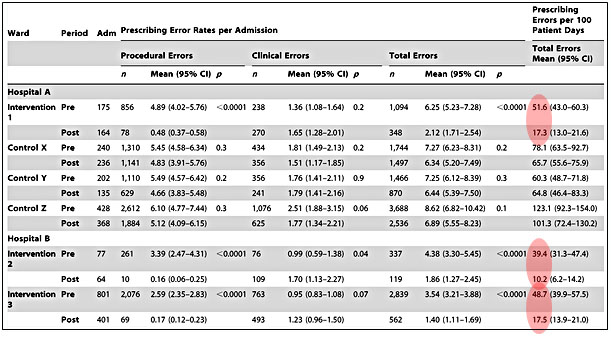One of my longtime medical pet peeves has been jokes about doctors’ bad handwriting. Ha ha. But it’s no joke. If you have sloppy handwriting, then prescriptions and procedures get mixed up and patients suffer. (Or maybe even die.)
Today Sarah Kliff points us to an Australian study that quantifies this. In two different hospitals, researchers replaced handwritten records with electronic records in some wards but not in others. Then they measured prescribing errors per 100 patient days. Here are the results:
- Hospital A: Errors reduced from 51 —> 17
- Hospital B1: Errors reduced from 39 —> 10
- Hospital B2: Errors reduced from 48 —> 17
Three control groups saw only slight drops in their error rates. Replacing handwriting with electronic records has a huge impact. So the moral of the story is: Switch to electronic records! These systems not only catch medication and dosage errors algorithmically, but they reduce the chance of errors from illegible written scripts. In the meantime, start taking handwriting as seriously as you do washing your hands.



















